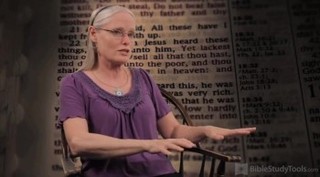Change Translation
- Recent Translations
- All Translations
Esther 1:20
Share
Listen to Esther 1:20
Settings
Scripture Text Size
20
And let this be published through all the provinces of thy empire, (which is very wide,) and let all wives, as well of the greater as of the lesser, give honour to their husbands.
Esther 1:20 Meaning and Commentary
Esther 1:20
small;
speaking respectfully to them, yielding a ready and cheerful obedience to all their commands; which would be done to princes and peasants, to high and low, to every rank of men.
And when the king's decree which he shall make shall be
published throughout all his empire
As it was proper it should, since the report of the queen's deed would be made everywhere: for it is great;
the empire consisting of one hundred and twenty seven provinces, ( Esther 1:1 ) , Aben Ezra and Abendana interpret it, "though" it is great, yet the decree should be published throughout; the latter observes, that this may respect the king's decree; and so the Targum is,
``for his decree is great;''it respecting a matter of great importance, and relating to a great personage, and would have great effect on the minds of persons, when it was observed that one so great was treated in this manner: and therefore all the wives shall give to their husbands honour, both to great and
small;
speaking respectfully to them, yielding a ready and cheerful obedience to all their commands; which would be done to princes and peasants, to high and low, to every rank of men.
Taken from John Gill's Exposition of the Bible
Unlock Deeper Insights: Get Over 20 Commentaries with Plus! Subscribe Now
Esther 1:20 In-Context
18
And by this example all the wives of the princes of the Persians and the Medes will slight the commandments of their husbands: wherefore the king’s indignation is just.
19
If it please thee, let an edict go out from thy presence, and let it be written according to the law of the Persians and of the Medes, which must not be altered, that Vasthi come in no more to the king, but another, that is better than her, be made queen in her place.
20
And let this be published through all the provinces of thy empire, (which is very wide,) and let all wives, as well of the greater as of the lesser, give honour to their husbands.
21
His counsel pleased the king, and the princes: and the king did according to the counsel of Mamuchan.
22
And he sent letters to all the provinces of his kingdom, as every nation could hear and read, in divers languages and characters, that the husbands should be rulers and masters in their houses: and that this should be published to every people.
Videos for Esther 1:20
The Douay-Rheims Bible is in the public domain.
